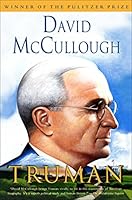Sublime
An inspiration engine for ideas

On December 15, 1944, President Roosevelt nominated Eisenhower for promotion to the five-star rank of General of the Army, along with Marshall, MacArthur, and “Hap” Arnold of the air force. They were joined by Leahy, King, and Chester Nimitz, who were named to the equivalent naval five-star rank of Admiral of the Fleet.
Jean Edward Smith • Eisenhower in War and Peace

In a 1967 monograph, Chynoweth recounted a conversation in which Eisenhower acknowledged his “guiding philosophy” for serving under Conner: “I forget my own ideas and do everything in my power to promote what he says is right.” Chynoweth asked: “Right or wrong?” Eisenhower purportedly replied: “The Commanding Officer is never wrong with me.”
... See moreSteven Rabalais • General Fox Conner: Pershing's Chief of Operations and Eisenhower's Mentor (The Generals Book 3)
Eisenhower did not always agree with the decisions of the Warren Court, but he accepted his constitutional responsibility to “take care that the laws be faithfully enforced.”
Jean Edward Smith • Eisenhower in War and Peace
In his first State of the Union address, Eisenhower had promised to carry out Truman’s edict and end segregation in the military and in the District, and he had kept that promise. By the end of 1953, all public facilities in the capital had been desegregated, and he could boast that in the Navy and the Air Force, segregated units were “a thing of
... See moreRobert A. Caro • Master of the Senate: The Years of Lyndon Johnson III
Ike replied on the twenty-seventh, noting that his “attitude toward possible future duty should be clear.”
Jean Edward Smith • Eisenhower in War and Peace
Eisenhower was in charge. He not only set the tone, but made the major decisions.
